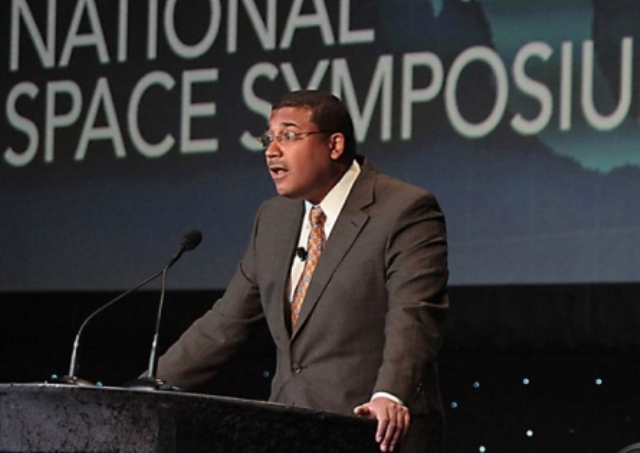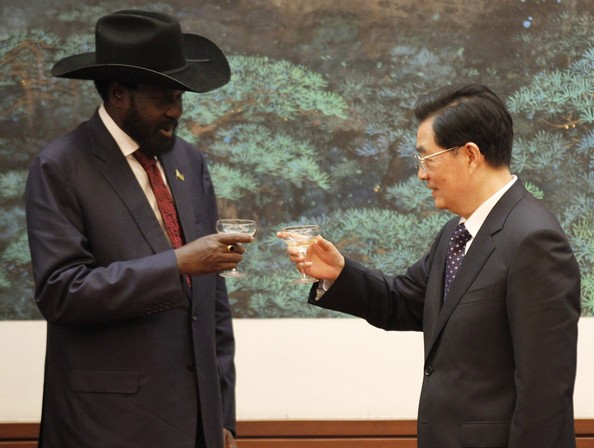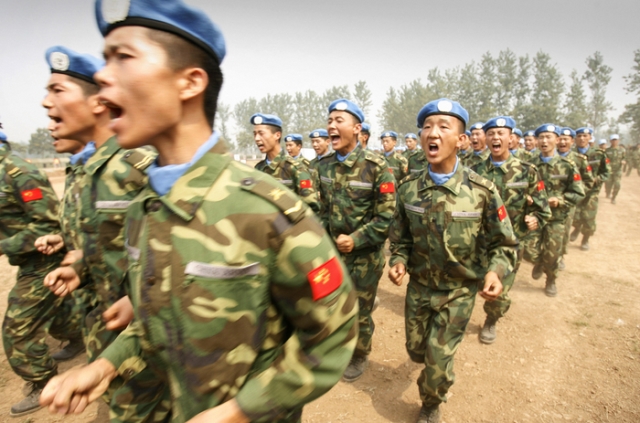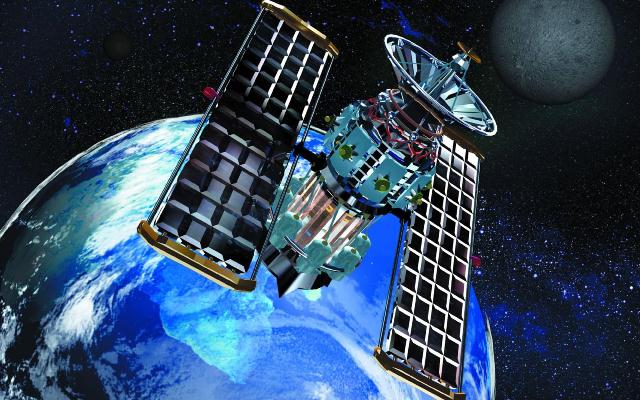
Frank A. Rose, US Deputy Assistant Secretary of State for Space and Defense Policy, U.S. Department of State
By TZ Business News Staff.
US Deputy Assistant Secretary of State for Space and Defense Policy Bureaus of Arms Control, Verification, and Compliance, Mr. Frank A. Rose visited Dar es Salaam, Tanzania in mid-September, 2014 to present a public lecture on space security he described as a continuation of Barak Obama’s engagement with Africa.
In his lecture, the Deputy Assistant Secretary of State accused China of creating insecurity in outer space. A military analyst in South Africa has in the meantime described the US as working hard to discredit China, calling it a free-rider on African peace when it is actually the other way round.
Mr. Rose accused China of ‘irresponsible’ activity which increased insecurity in outer space. He told attendants at Tanzania’s Commission for Science and Technology (COSTECH) building in Dar es Salaam that China was not showing sufficient co-operation in making outer space a secure environment.
He said China was the one country in the world which was acting in a manner which has created dangerous objects in outer space. In the year 2007 China blew up its own satellite for some reason, Mr. Rose said, adding that blowing up the satellite created debris which cannot fall out of the sky and which will therefore continue to stay in orbit, creating a permanent danger to other working satellites in space.
The debris could damage other useful objects in orbit such as satellites used for peaceful developmental purposes such as earth observation, disaster warning, crop monitoring and communications.
“There is a lot of debris in space, making lower orbit very dangerous to operate in,” Mr. Rose contended. “So how do we create security in space? Nations should say we will not do stupid things in space.”
Efforts failed to get Chinese government officials to make a statement on the allegations China was notorious in the creation of debris in space. A Chinese Embassy public affairs officer named Tien Fa asked for written questions but no response came back after questions were sent by e-mail and text messaging.
Satellites have become instrumental for modern life, Mr. Rose said. They should therefore be made to work in a secure environment. “For example, Kenya hosts a UN Regional Centre for Mapping of Resources for Development (RCMRD) which utilises data from American earth observation satellites to respond to requests from member states for crop monitoring, water conditions, and disaster warning,” Mr. Rose said, adding that such useful outputs from satellites in orbit are placed at risk through irresponsible behaviour.
Tanzania and Africa as a whole support United States of America and the European Union efforts to create and maintain a secure environment in outer space through a proposed code of conduct protecting earth observation, disaster warning, crop monitoring and communications satellites in orbit.
“The question of security in outer space has a lot of relevance to Africa. Security in space is important to us as it is to the US and the EU,” Dr. Pascal Felix Waniha, a member of the African Union technical team involved in formulation of an African Space Program, said in an interview at the end of the space security lecture in Dar es Salaam.
The African Union (AU) is in the process of forming a pan-African space programme, Dr. Waniha said, explaining that the draft programme favours a secure outer space environment.
The first draft of the African space programme was drafted in Harare, Zimbabwe recently with Dr. Agnes Kijazi from Tanzania as Chairperson of the technical committee of the African Meteorological Committee. Dr. Waniha also attended the technical committee.
Talking after the meeting at COSTECH, Dr. Waniha said irresponsible behaviour in outer space was not in the interest of African development. Organisers of the public lecture, the US Embassy in Dar es Salaam, said the lecture was meant to underscore how space can be utilised to benefit African nations and to talk about advantages of participating in multilateral space initiatives such as the US and EU backed Code of Conduct in space.
Fear of the escalation of ‘irresponsible behaviour’ in outer space has led the European Union to prepare a non-legally binding code of conduct for countries with satellites in space to follow in order to enhance security in space. There were 2 countries operating in space during the cold war between the 1960s and the 1980s. Mr. Rose said now there are 50 countries with satellites in space and the number is set to rise.
In the past, during the East-West cold war, even as the US and Russia were political adversaries, an agreement existed between the two super powers to ensure peace in outer space, Mr. Rose told the small group in attendance. “The US and Russia had this understanding: don’t attack our satellite because if you do, that would be a way to start a nuclear war. I am not sure the Chinese hold that view. But we are going to continue talking. We are going to continue to engage.”
There is one good thing in all this however, the Assistant Deputy Secretary of State said. All countries—the US, Russia and China all wish for the long term sustainability of space security.
“The US says let’s focus on what unites us, not what divides us. All nations have the right to peaceful use of outer space,” he said. “We have to work together as an international community to make space a safe place. The space environment is very fragile.”
It was therefore important that nations of the world adopt the proposed International Code of Conduct for Outer Space Activities and the United Nations Debris Mitigation Guidelines.
“As African nations benefit more and more from space, and many begin to own satellites, it’s our hope that African nations will play an active role in developing international best practices: of responsible behavior, such as discussions on the draft International Code of Conduct for Outer Space Activities,” Mr. Rose said.
Africa is a big customer of Satellite products. There is therefore a lot of awareness on space issues. Security in outer space is therefore in Africa’s interest, , Dr. Waniha said during the interview, adding that contents of the proposed International Code of Conduct for Outer Space Activities was in the continents favour.
The Code of Conduct calls for responsible behaviour in outer space. It establishes transparency and confidence-building measures, with the aim of enhancing mutual understanding and trust, helping both to prevent confrontation and foster national, regional and global security and stability, and is complementary to the international legal framework regulating outer space activities.
A copy of the code also calls on subscriber nations to share, on an annual basis, where available and appropriate, information with the other Subscribing States on their space strategies and policies, including those which are security-related, in all aspects which could affect the safety, security, and sustainability in outer space; the subscriber nations major outer space research and space applications programmes, space policies and procedures to prevent and minimise the possibility of confrontation.
South Africa, Nigeria and Egypt were originally the only African countries preparing Space programs, individually, but the African Union has intervened to involve the rest of the continent because assets in space would be important for the entire continent, Dr. Waniha said in the interview.
A peaceful, secure outer space environment was important for the African space program, he said. Dr. Waniha was one of the few invited guests at the public lecture on benefits of space security for development in Africa.
“In 2007, China fired a missile from earth and destroyed their own satellite up there in the sky. I think their intention was to send a message to someone to show they could destroy a satellite if they wanted to, but this was creation of rubbish in the sky,” the Atmospheric Scientist working in the Technical Department of the Tanzania Meteorological Agency said.
In South Africa, analysts contend the US is attempting to use African security needs to elbow its way into Africa. The American White House has said in an internet posting: “The United States strongly supports the work of more than 67,000 African peacekeepers serving with the African Union (AU) and United Nations (UN) in Africa. These men and women are working to protect civilians, prevent violence, and promote security and stability in many of Africa’s most complex conflicts.
“African countries have made clear that rapid response to crises is at the top of their peace and security agenda. To support this priority, the United States announced at the U.S.-Africa Leaders Summit the African Peacekeeping Rapid Response Partnership (APRRP, “A-Prep” for short) a new investment of $110 million per year for 3-5 years to build the capacity of African militaries to rapidly deploy peacekeepers in response to emerging conflict, a concept that holds powerful life-saving potential.”
Chinese help to Africa in formation of an African Peacekeeping Rapid Response Partnership has been a Chinese idea since 2012. The South African-based DefenseWeb says the US now projects itself as a peace angel which can bring lasting peace and security to Africa. But at the same time, during an interview, the American leader marked China as a free rider for 30 years in world peace and security affairs. But is that true?

South Sudan president Salva Kiir (L) and Chinese president Hu Jintao toast each other during a signing ceremony at Great Hall of the People on April 24, 2012 on Beijing, China. President Kiir confirmed that he sees China as an important and strategic partner, while the meeting was held against a backdrop of recent violence between the the newly formed independent nation of South Sudan and Sudan, both countries from which China purchases oil.
During the years when Africa was troubled by unrest and turmoil, the US did not show much enthusiasm in safeguarding peace and security in Africa. When the tide was turned and Africa’s political and security situation as a whole was turning better, the US however, out of its counter-terrorism needs, rushed into setting up an Africa Command, establishing drone basis in a number of African countries and sending more military experts to the continent.
It is evident that the US “return to Africa” has nothing to do with Africa’s security, but simply driven by its strategy to strengthen military presence and control Africa’s security lifeline. African countries are soberly aware of this, and oppose the relocation of USAFRICOM to Africa. That is why it is still embarrassingly based in Stuttgart of Germany.
Counter-terrorism has become a catchphrase for the US to interfere in Africa’s peace and security affairs in recent years. However, the double standard approach, unilateral means and pursuit of regime change, coupled with domestic political considerations, made the counter-terror activities seldom successful. In most cases, it made things worse. In the early 1990s, the US used force in Somalia under UNOSOM, but rashly withdrew its troops due to domestic pressure brought by the incident of “Blackhawk Down”, leading to years of civil war among the warlords in the country and the spread of the terrorist forces from the land to the sea.
In 2011, it was just the bombardment of NATO and military actions of the US and France that toppled the Qaddafi regime, leaving Libya in chaos until today and a safe haven for many terrorist and extremist forces in the Sahel region. Many of these terrorists and extremists were just the forces the US and its allies relied on in toppling the Qaddafi regime. The outflow of terrorist forces from Libya inflated the conflicts in the north of Mali, almost toppling the legal government.
Contrary to what it said, at the time for peace in Africa, the US often took “neo-interventionism” and the “responsibility to protect” as an excuse to blatantly interfere with Africa’s internal affairs irrespective of the legitimate appeal of the AU and African sub-regional organizations, which weakened the authority of the AU and undermined the efforts of the African people to solve African problems in the African way. Since Africa is not the US’ core interests and diplomatic priority, although being a world police itself, the US has very limited presence in the UN peace-keeping missions in Africa.
China has never been a free rider of the US regarding Africa’s peace and security issues. On the contrary, China is making visible contribution to Africa’s peace and security. Over the years, China has sent more peace-keepers to the UN missions in Africa than any other permanent member of the UN Security Council. Up till now, China has participated in 16 UN peace-keeping missions in Africa, contributing over 1800 peace-keeping personnel now on the continent. Last year, China sent for the first time formed unit of security forces to Mali, and plans to send similar security forces to South Sudan this year. China’s active involvement in peace-keeping missions has been widely commended. Starting from 2009, China has by far sent 17 batches of fleets, escorting over 5400 Chinese and international vessels in the Gulf of Aden and Somali seas.

Chinese People’s Liberation Army troops bound for a peacekeeping mission in Darfur train in Henan province, China in September 2007. (AFP Internet Photo).
In 2012, China launched the “Initiative on China-Africa Cooperative Partnership for Peace and Security” at the fifth Ministerial Conference of FOCAC, with the purpose of deepening cooperation in relevant fields with the AU and African countries. During his visit to Africa last May, Chinese Premier Li Keqiang proposed to upgrade China-Africa Cooperation in peace and security, announcing that China would actively explore ways to help the development of an African Standby Force and African Capacity for Immediate Response to Crisis, and support the collective security mechanisms in Africa. The Chinese government has also been actively involved in the mediation efforts to stop wars and address hotspot issues.
It is natural for China to take a more active part in Africa’s peace and security construction with the growth of China-Africa cooperation and people-to-people exchange. However, China has been consistent in its diplomatic policies and concepts. China respects the sovereignty of African countries, values the roles of the UN and regional organizations, always be persuasive and unbiased and pushes peaceful talks. China never seeks selfish geo-political interests and always works for the sake of peace and stability of related countries and regions. Such practice will inject new dynamism in the cause of African peace and security.
We know well that due to complex histories and realities, Africa is still confronted with severe challenges and restraints in its pursuit for peace and security, and needs concerted efforts and active participation of the international community. The US, with its military might and influence in Africa, can play a crucial role. We are willing to work together with the US and other members of the international community to promote peace and development in Africa for win-win results and benefits of the entire mankind.




